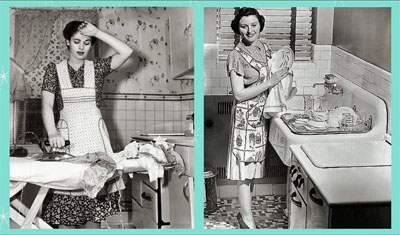
By Janine Starks*
Here's a letter from my mail-bag:

Dear Janine: People who claim money isn’t important have probably never been in a cold sweat at the eftpos machine, cried over a dishonour fee, or delayed going to the doctor. They don’t have to explain to children why we can’t go to the movies and why it’s a big deal when a polar fleece or school shoes are lost. We have two primary school aged children and our joint income is around $75,000. I am part-time and earn $15,000. With all the after-school activities involved, my income is limited by my time. My husband and I are lucky in the big scheme of things. We have a small mortgage of $75,000 on a house valued at $280,000. Our property needs some work and we’ve got a 20 year old vehicle. I wonder about the sense in putting the cost of a newer car on the mortgage? We lease some land and own some sheep which should pay for itself. Our money just never seems to last from one fortnight to another. We find it so difficult to save – have you got any tips?
Comedienne Rita Davenport once said “Money isn’t everything, but it ranks up there with oxygen”.
The author Jane Austen put forward the opinion that “A large income is the best recipe for happiness I ever heard of”.
Even Arnold Schwarzenegger managed to hit on the point that only the wealthy try to disengage the link between money and happiness, when he said “Money doesn't make you happy. I now have $50 million but I was just as happy when I had $48 million.”
For the average Kiwi family, money is vital and most of life’s decisions are dictated by it. I’m sure your situation is very typical of a large majority of families and you will have hit a note with a lot of mums and dads when you talk about the missing polar fleece being a big deal.
While it might feel like an unintended advantage, the one thing I can see pretty clearly is that your own struggles will make your kids into well rounded and sensible adults. Like you say, the big picture for you and your husband is perfectly reasonable.
| Email questions to starkadvice@gmail.com, subject line: Financial Agony Aunt. Anonymity is guaranteed. |
You have low debt and just over $200,000 of equity in your property. In your position a lot of people would borrow a little more on the mortgage to replace the car and fix the house up. If you want to consider this, you need to be armed with information.
Do the math
My tips are:
1. Make a list of the likely bills you will face on the old car. Decide if its old and reliable or old and a money-pit. If it’s a money-pit, upgrading could actually save you money in the longer run.
2. Research the cost of the upgraded car and make sure you fully understand what effect it will have on your mortgage. If you buy a $15,000 car, your mortgage will go up to $90,000. The fortnightly repayments would increase from $390 to $470, if you have a 10 year mortgage at 6.4 percent. Over 10 years, it’s an extra $80 a fortnight and you will pay back just over $20,000 more.
3. Add in the price of the house renovation and run all the numbers again. (For interest.co.nz's mortgage calculator click here.)
4. Prepare a detailed fortnightly budget for the family – get out your bank statements and look at where you are spending money. Is there room for the mortgage repayments to increase, or will you have to extend the length of the mortgage?
KiwiSaver a forced savings habit
As for saving, you should both consider speaking to your bank or adviser about Kiwisaver.
I know the minimum contribution has gone down to 2%, but really push yourself and see if you can make it 4%.
Ask your employer what your take-home pay would be and weigh it up. Ask about options outside the default scheme and think about signing up the kids as they get the $1000 kick-start and you don’t have to make contributions if you can’t afford them.
In the broader scheme of things, saving money is a simple formula which has a lot in common with losing weight. For weight loss it’s ‘energy-in’, less ‘energy-out’. You either keep your mouth closed more, or make your legs trot faster.
No quick fixes
It’s the same with saving – increase your income, or start cutting back and spending less.
There are no magical get rich quick schemes. It’s a hard grind and easy to fall off the wagon.
It doesn’t sound to me like you are extravagant spenders. It sounds more like you wish you had a bit more income. That is not going to happen without some serious intervention from you. Are you pushing yourselves to get promotions, or are you sitting comfortable, not wanting any more responsibility?
As a mum, you have the limitation of working 9-3pm and it’s fair enough that you want to be part of those after school activities. Working within that restriction, is there anything you could do to improve your income?
Mums often hold the key to changing a family’s wealth.
Could your retrain, become a supervisor at work, or add to your qualifications?
Saving involves sacrifice and sweat
Yes, it all involves some pain, but it can be life changing. Should you move to a different vocation – the education sector is often great for Mums. Do you have any hobbies or skills between you that could be combined into an at-home business?
You run some sheep, so are you really farmers at heart?
Do you have the skills to take a farm-management contract? Always weigh up the risks and the job security. You and your husband need a good heart to heart about where you are heading in life as you are the only two people who can change the formula.
Have a brain storm; no idea is too silly and it’s quite fun once you get into it. You’re in charge of your own destiny and savings. Something certainly needs to change if you’d like more income.
*Janine Starks is Co-Managing Director of Liontamer Investments. Opinions in this column represent her personal views and are not made on behalf of Liontamer. These opinions are general in nature and are not a recommendation, opinion or guidance to any individuals in relation to acquiring or disposing of a financial product. Readers should not rely on these opinions and should always seek specific independent financial advice appropriate to their own individual circumstances.
1 Comments
simplesavings.co.nz and info@cheapskates.com.au are both websites I have enjoyed and learnt from. Get your husband out digging to make you a vege garden. Only shop once a week with a list. Have a competition with yourself as to how little you spend. Don't buy a new car until you can afford it. Get your husband to go to a mechanic class. Have a budget - I do still and I love it. If you possibly can pay off your mortgage as fast as you can. $20.00 a week makes all the difference as to how much interest you have to pay the bank overall. And if you possibly can put 10% of you net weekly income in a bank account. Good luck - you will get there.
We welcome your comments below. If you are not already registered, please register to comment.
Remember we welcome robust, respectful and insightful debate. We don't welcome abusive or defamatory comments and will de-register those repeatedly making such comments. Our current comment policy is here.